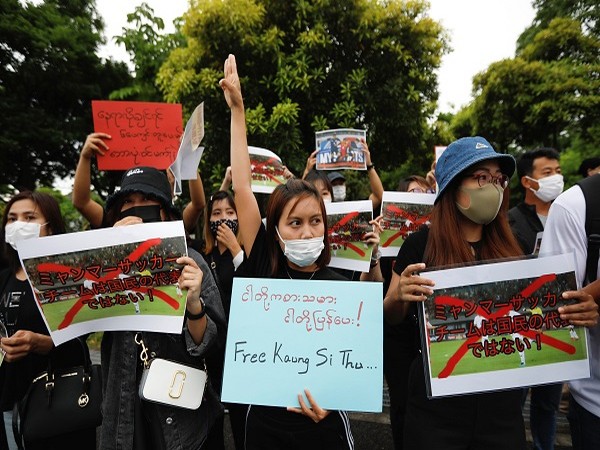Myanmar military torturing detainees to know whereabouts of opponents, says released US journalist
Myanmar's military is using torture to extract information from detainees on the whereabouts of senior opposition members and activist leaders, an American journalist recently released from a Yangon prison told CNN.

Washington: Myanmar's military is using torture to extract information from detainees on the whereabouts of senior opposition members and activist leaders, an American journalist recently released from a Yangon prison told CNN.
The 44-year-old Nathan Maung was detained for over three months in Myanmar before being deported to the United States on June 15. He said that he had endured two weeks in a secretive military-run interrogation center in the country's biggest city Yangon.
Speaking to CNN on Wednesday, Maung described his time in the facility as "hell" and said he prepared himself to die there, believing the soldiers would kill him.
Also Read |
Myanmar authorities arrest 638 suspects for terror acts, illegal possession of arms
He is one of more than 6,200 people arrested since Myanmar's military, led by General Min Aung Hlaing, seized power in a coup on February 1, according to advocacy group Assistance Association for Political Prisoners (AAPP), a rights group that keeps track of political prisoners in Myanmar.
Maung, the co-founder and editor in chief of the Myanmar online news site Kamayut Media, was arrested on March 9 alongside co-founder and news producer Hanthar Nyein, 39, as security forces raided their office.
He said that after he was taken to an interrogation centre, he and Nyein were beaten, denied water for two days and food for three days. They were also handcuffed and blindfolded for nearly the entire two weeks they were there.
Also Read |
Days after military coup, detained Myanmar President taken to 'unknown location'
"They started with a blindfold and handcuffs and then started questioning. They kicked our face, hands and shoulder, all the time. For every answer, they beat us. Whatever we answered -- whether correctly or incorrectly -- they beat us. For three days, non-stop," he told CNN.
This torture carried on for eight days, during which the detainees would be moved between the houses and cells, said the American journalist. Maung believes the soldiers were pressuring Hanthar Nyein to hand over his phone password, which would give them access to his encrypted communications and phone records with high profile opposition and activist leaders.
However, when the soldiers discovered he was a US citizen, the beatings stopped. "They stopped beating me and started asking questions about why the US government sent me and were giving me US funding, if I was working for the CIA -- those kind of stupid questions. I said no, I'm a journalist, no one gave me money," said Maung.(ANI)
 Dynamite News
Dynamite News 